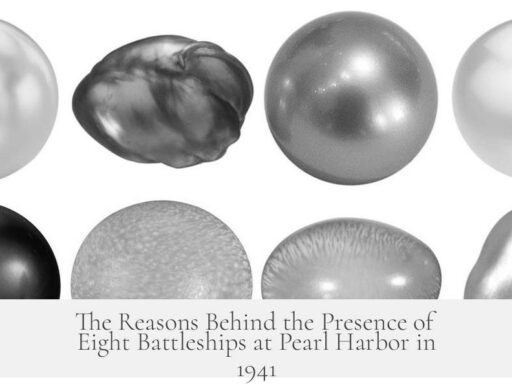The name “Tyrone” becomes commonly associated with Black Americans mainly due to the cultural influence of the African-American soul singer Tyrone Davis during the late 1960s and 1970s, despite its Irish origins and early popularity linked to the Irish-descended Hollywood actor Tyrone Power.
The name Tyrone has Irish roots, originally popularized in the United States by Tyrone Power. Power was a celebrated American actor from an Irish acting family, gaining fame in Hollywood starting 1936 with his leading role in Lloyd’s of London. His prominence caused the first noticeable increase in the name’s use around 1937. However, data shows that at this time, the name was not yet distinctly associated with any one racial group, as the Social Security and census data on first names linked to race are limited. About 32% of Tyrone name usages have been among White Americans, while approximately 59.5% involved Black Americans, but this distribution evolved over time.
While Tyrone Power’s influence brought the name into American pop culture, his appeal was mainstream without a particular connection to Black audiences. The actor’s Irish-American background and mainstream roles do not explain the name’s strong association with Black Americans later on.
The significant turning point comes in the late 1960s, specifically between 1968-1969, when the name Tyrone experiences a second and more pronounced rise in popularity. This spike correlates with the fame of Tyrone Davis, an African-American soul singer. His hit singles like “Can I Change My Mind” (1968) and “Turn Back the Hands of Time” (1970) reached number one on the R&B charts and resonated deeply within Black communities. Davis’s music career aligned with the rise of soul music, which played a key role in expressing Black identity and culture during that era.
Tyrone Davis’s influence extended beyond music. He engaged with Black political movements, exemplified by his attendance at a benefit for Black Panther leader Fred Hampton after Hampton’s assassination. His song in 1973, “Writin’ on the Wall,” called for pan-African unity and referenced Malcolm X, embedding his name within Black political and cultural activism. This stronger association of the name Tyrone with Black identity during the soul music era led to its widespread use among Black Americans.
The historical context of African-American naming practices adds clarity. Before the 20th century, African-American first names often carried biblical or symbolic significance linked to slavery’s legacy or aspirations of freedom. However, by the mid-20th century, cultural influences like music and public figures shaped naming trends. In this climate, Tyrone Davis’s prominence helped transition Tyrone from an Irish name known mainly through Tyrone Power to a name culturally anchored within Black America.
Given the lack of comprehensive racial data on first names and their usage over time, exact numerical evidence tying the name Tyrone’s popularity solely to one racial group is unavailable. However, several data sources, including mortgage application records analyzed by researchers such as Konstantinos Tzioumis, suggest a significant Black American prevalence in using the name post-1960s. The identity of Tyrone Davis as a cultural icon and community figure provides a convincing explanation for this trend.
- Tyrone Power popularized the name in the 1930s, but mainly among the general population without a Black association.
- Tyrone Davis’s success as a soul singer and his political activism sparked the name’s popularity within Black communities in the late 1960s and 1970s.
- The name’s Black American association ties strongly to cultural pride and identity boosted by Davis’s influence, not directly to its Irish origin.
- Limited racial name data restrict firm conclusions, but cultural evidence aligns well with known naming patterns.
Tyrone’s trajectory from Irish theatrical roots to a name strongly embraced in African-American culture illustrates how cultural icons can reshape naming trends. The name evolved into a marker of identity largely through mid-20th-century Black musical and political movements, reflecting broader social dynamics more than ethnic origin.
- “Tyrone” originates from Irish culture but gains US popularity via actor Tyrone Power in the 1930s.
- The name’s association with Black Americans becomes prominent due to soul singer Tyrone Davis in the late 1960s.
- Davis’s music and activism embed Tyrone within Black cultural identity and pride.
- Racial data on first names is limited, but usage patterns suggest strong Black American prevalence.
- Names often reflect cultural shifts more than original ethnic roots, as seen with Tyrone.
How Did the Name “Tyrone” Become So Commonly Associated with Black Americans, Despite Its Irish Roots?
If you’ve ever wondered why the name Tyrone feels like it dances on the tongues of many Black Americans, yet its origins remain firmly planted in Irish soil, you’re not alone. This question is a fascinating peek into cultural exchange, fame, and identity that’s more complex than it seems at first glance.
Simply put, the name Tyrone entered American popular culture thanks to an Irish-descended Hollywood star, Tyrone Power, but it became strongly linked to Black Americans decades later through the cultural influence of soul singer Tyrone Davis.
Where Does the Data Even Come From?
Let’s begin with the tricky part: tracking names by race in the United States isn’t straightforward. Government data sources like the Social Security Administration reveal name popularity but don’t share racial breakdowns. The U.S. Census offers some insights but only on surnames in 2000 and 2010, not first names. A more focused study from a 2007 mortgage application data set connected first names to race, but it’s still limited.
According to research, roughly 59.5% of people named Tyrone are Black, while about 32% are White. That’s a strong skew toward Black Americans, but the data’s patchy, so it’s best to follow the timeline and cultural clues.
Tyrone Power: The Irish Hollywood Link
Back in the 1930s, the name Tyrone didn’t exactly soar on name charts. But Hollywood introduced many Americans to it through the charismatic Tyrone Power, a lead actor descended from a famous Irish acting family. He got his breakthrough role in 1936’s Lloyd’s of London and was a major star at Fox studios.
Power inherited the name from his great-grandfather, a well-known Irish actor of the 1830s, which firmly ties the name to Irish heritage. After Power’s rise, the name Tyrone saw a modest uptick in popularity.
Fun fact: Tyrone Power’s fame gave the name a foot in the door of American consciousness, but there’s no evidence he resonated especially with Black audiences at the time. He was a mainstream Hollywood figure, period.
Then Came Tyrone Davis: The Soulful Cultural Catalyst
Fast forward three decades. In 1968, the name Tyrone suddenly spikes again, shooting up from 180th to 137th in popularity by 1969. This jump aligns perfectly with African-American soul singer Tyrone Davis, whose 1968 hit Can I Change My Mind dominated the R&B charts.
Davis wasn’t just a singer. He was a Black cultural icon deeply involved in the political ferment of his era. Inspired by civil-rights leaders and Black Panther figures like Fred Hampton, Davis intertwined his music with messages about unity and justice. His 1973 hit Writin’ on the Wall referenced Malcolm X and Pan-African themes.
This rich association between Tyrone Davis and the Black community solidified the name’s racial link. People didn’t just hear an Irish name—they heard the soul of a generation and a movement.
Why Did Black Americans Embrace “Tyrone”?
This question has many layers. African-American naming practices have evolved dramatically over the centuries. Traditional names from the 19th century—like Abraham, Moses, and Booker—gave way to newer names influenced by cultural pride and artistic icons in the 20th century. Names connected to prominent figures in music, activism, and sports often see surges in popularity.
Tyrone Davis exemplifies this. The name became a badge of identity through his success in soul music, a genre deeply rooted in Black experience. And because he was born after Tyrone Power’s rise, Davis very likely inherited the name from that earlier popularity, blending Irish origins with African-American culture.
Two Tyrone’s, One Name, Different Legacies
It can be easy to assume names travel simply and directly from origin to culture. But Tyrone’s story shows how names cross racial and social lines, getting reinterpreted and reengraved with new meaning. The first Tyrone was an Irish-American actor who gave the name a foothold in pop culture. The second Tyrone was a Black soul artist who transformed that foothold into a cultural symbol.
Without Tyrone Power, Tyrone Davis might not have inherited the name. Without Tyrone Davis, Tyrone might never have become almost synonymous with Black American culture.
What Can We Take Away from This?
- Names evolve culturally. They don’t just stay attached to one origin or group. They move, change, and take new meaning based on community influence.
- Access to complete data is limited. Without perfect racial naming datasets, researchers use creative methods to piece together stories behind names.
- Cultural icons matter. Whether a Hollywood star or an R&B singer, famous bearers of a name shape how society hears and uses that name.
- Identity is dynamic. The name Tyrone’s journey reflects how identities and names shift across generations and groups.
Ever Met a Tyrone? Now You Know the Backstory!
Next time you meet someone named Tyrone, you can impress them with some history. The name reaches back to Irish stage actors and leaps forward to Black soul music revolutionaries. It’s a perfect example of how something as simple as a name tells a story of cultural intertwining, fame, and identity shifts across decades.
So, what do you think? Does knowing the history behind a name change how you see it? Could this cultural journey inspire us to look deeper into the names we encounter daily?
In Summary
| Fact | Details |
|---|---|
| Irish Origin | Tyrone descends from an Irish acting family, popularized by Tyrone Power in the 1930s. |
| Initial Popularity | Tyrone Power’s fame caused a modest rise in the name’s use, crossing racial lines but not specifically linked to Black Americans yet. |
| Black Cultural Association | The 1968–69 surge ties closely to soul singer Tyrone Davis, whose influence made the name popular in Black communities. |
| Data Caveats | Reliable racial breakdowns for first names are limited, so conclusions rely on cultural context and scholars’ best estimates. |
In the end, the case of Tyrone is a vivid reminder of how names carry stories that span geography, history, and culture—sometimes in surprising ways. The next name you hear might have a journey just as rich!


